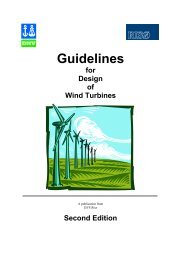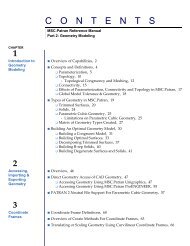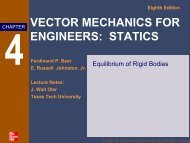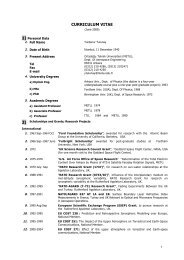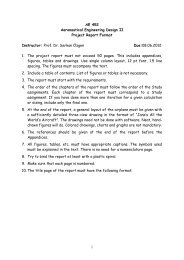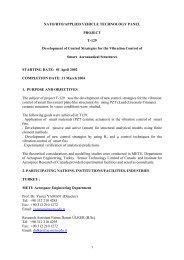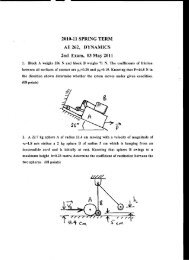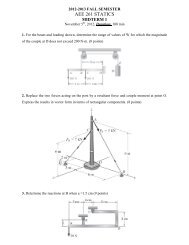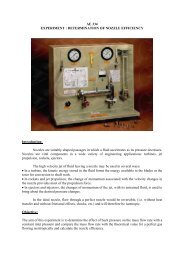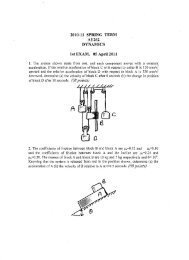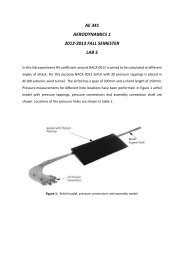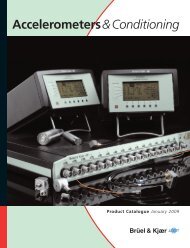2012 METU Lecture 5 Control of Smart Systems - Department of ...
2012 METU Lecture 5 Control of Smart Systems - Department of ...
2012 METU Lecture 5 Control of Smart Systems - Department of ...
Create successful ePaper yourself
Turn your PDF publications into a flip-book with our unique Google optimized e-Paper software.
PID <strong>Control</strong>lers<br />
• The PID controller calculation (algorithm) involves three separate constant<br />
parameters, the proportional, the integral and derivative values, denoted P, I, and<br />
D.<br />
• These values can be interpreted in terms <strong>of</strong> time: P depends on the present<br />
error, I on the accumulation <strong>of</strong> past errors, and D is a prediction <strong>of</strong> future<br />
errors, based on current rate <strong>of</strong> change. The weighted sum <strong>of</strong> these three<br />
actions is used to adjust the process via a control element.<br />
• In the absence <strong>of</strong> knowledge <strong>of</strong> the underlying process, a PID controller is the<br />
best controller. By tuning the three parameters in the PID controller algorithm,<br />
the controller can provide control action designed for specific process<br />
requirements.<br />
• The the use <strong>of</strong> the PID algorithm for control does not guarantee optimal<br />
control <strong>of</strong> the system or system stability.<br />
CONTROL SYSTEMS, ROBOTICS, AND AUTOMATION – Vol. II - PID <strong>Control</strong> - Araki M.<br />
http://en.wikipedia.org/wiki/Special:BookSources/9-780863412998<br />
http://en.wikipedia.org/wiki/PI_controller#PI_controller<br />
33



